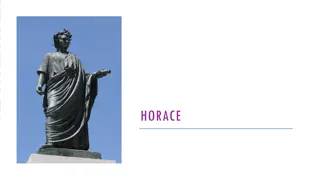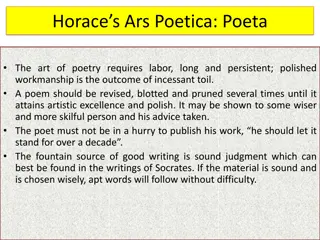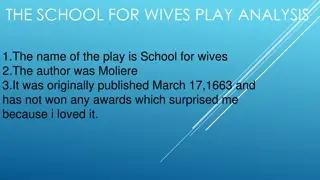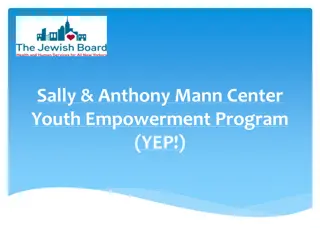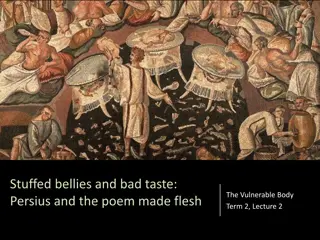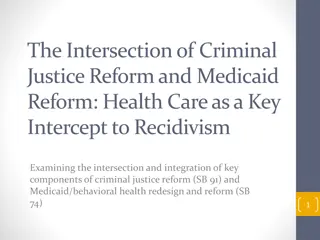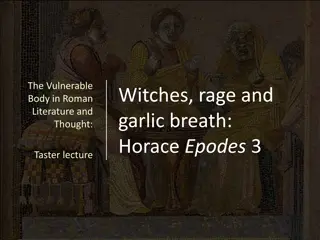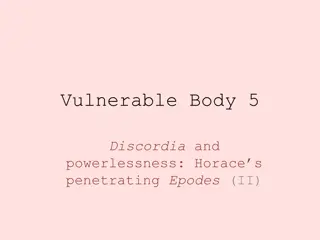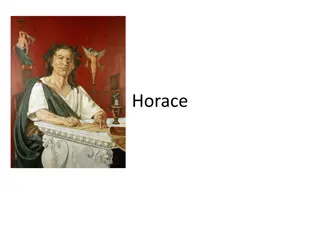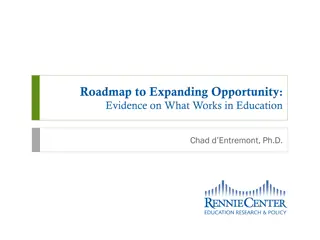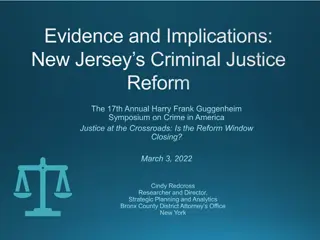Horace Mann and Education Reform: Vision and Impact
Horace Mann, a passionate advocate for education reform, dedicated his life to improving public schools in America. With a background marked by self-education and a keen interest in learning, Mann's vision focused on enhancing educational resources, promoting social unity, and advocating for free, accessible education for all. Through his six propositions and leadership in the Common School Movement, Mann paved the way for significant advancements in the American education system, leaving a lasting impact on generations to come.
Download Presentation

Please find below an Image/Link to download the presentation.
The content on the website is provided AS IS for your information and personal use only. It may not be sold, licensed, or shared on other websites without obtaining consent from the author.If you encounter any issues during the download, it is possible that the publisher has removed the file from their server.
You are allowed to download the files provided on this website for personal or commercial use, subject to the condition that they are used lawfully. All files are the property of their respective owners.
The content on the website is provided AS IS for your information and personal use only. It may not be sold, licensed, or shared on other websites without obtaining consent from the author.
E N D
Presentation Transcript
Horace Mann and Education Reform Sadie Azersky Period 6, APUSH
Who is Horace Mann, and what is his background? - Born May 4, 1796 in Franklin, Massachusetts - Died August 2, 1859 in Yellow Springs, Ohio - When he was in school, he was taught by poor teachers, and forced himself to educate himself in the Franklin town library - He grew up in a poor family, and his father was a farmer - He took a great interest in learning, and getting an education was important to him - It was this personal experience that led him to begin a
Education and Experience - Went to college at Brown University and studied law - Had a seat in the House of Representatives from 1827 to 1833 - Served in the Massachusetts senate from 1835 to 1837 - Actively involved in the temperance movement (aimed at prohibiting the use of alcohol) - Worked to establish a state insane asylum in Worcester, Massachusetts
What was his general vision? -Wanted to improve techniques and resources within the public school system -His main goal was to bring local schools under a single town authority -He wanted uniformity, as he believed that this would result in stronger social unity
Manns Six Propositions/Philosophies 1) Education is necessary for a republic, as one cannot remain ignorant and free 2) The public should pay for and control education 3) Schools should embrace children from various religious, social, and ethnic backgrounds 4) Education must be free of sectarian religious influence 5) Education must be spread throughout by the spirit, methods, and discipline of a free society.
The Common School Movement -In 1830, prior to this movement, no state had a system of education -1837: Massachusetts Board of Education was established -Mann was the first Secretary of the Board -He reorganized the MA school system, lengthened the school year (six months), doubled teachers salaries, expanded the curriculum, and introduced new methods of professional training
More of Horace Manns Work -1838: he started a biweekly journal called the Common School Journal, which was to spread ideas about improving education across the country
Improvement, but work still needs to be done -1850s: elementary schools in every state -some teachers throughout other states weren t educated enough -African American children still couldn t go to school -only about one third of white children were enrolled in schools in 1860
Native Americans -growing interest in educative Natives -believed they could be civilized if they were taught the ways of the white world -still, the majority of Native Americans remained excluded from white educational reform
Final Impact on Society -At the beginning of the Civil War, the US had one of the highest literacy rates of any nation in the world -94% of the population in the North -83% of white population/58% of total population in the South
Bibliography Cremin, Lawrence A. Horace Mann. Encyclop dia Britannica, Encyclop dia Britannica, Inc., 20 Jan. 2017, www.britannica.com/biography/Horace-Mann. Horace Mann & Education Reform. Study.com, Study.com, study.com/academy/lesson/horace-mann-education-reform-contributions-philosophy- quiz.html. Matthew J. Brouillette, published on July 16, 1999. The 1830s and 40s: Horace Mann, the End of Free-Market Education, and the Rise of Government Schools. [Mackinac Center], www.mackinac.org/2035. Antebellum Culture and Reform. McGraw-Hill Connect, connect.mheducation.com/connect/hmEBook.do?setTab=sectionTabs.


